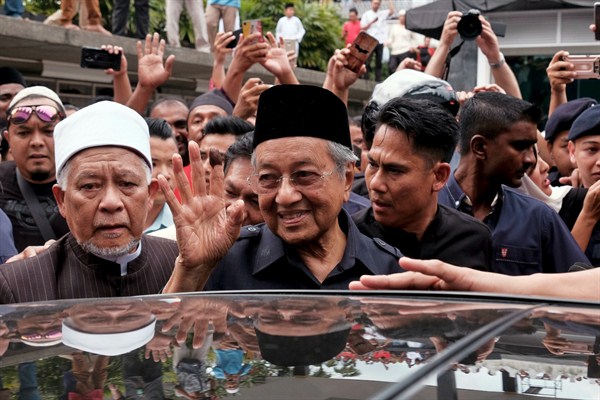In a result few pollsters and analysts predicted, including myself, last week Malaysia’s opposition coalition, led by 92-year-old former Prime Minister Mahathir Mohamad, defeated the ruling coalition of Prime Minister Najib Razak in national elections that marked the first transfer of power in Malaysia’s modern history. The long-dominant United Malays National Organization, or UMNO, and the coalition it leads, Barisan Nasional, have governed Malaysia since its independence in 1957.
To the Najib government’s credit, despite rumors on election night and the following morning that it would take measures to defraud the voters, or prevent a change of government, the transition process was completed in an orderly and largely peaceful manner. The Election Commission, seemingly stacked with Najib loyalists, announced that the opposition coalition had won a majority of parliamentary seats, and the Malaysian king provided an audience to Mahathir and named him prime minister.
Yet despite jubilant scenes in many parts of Malaysia, hard questions now confront the winning Pakatan Harapan coalition, which includes an array of parties that draw on disparate groups of voters and have different platforms. United by an unlikely figurehead in Mahathir, who ruled semi-autocratically as prime minister from 1981 to 2003 when he repeatedly cracked down on his own political opponents, they shared the goal of defeating the divisive and scandal-plagued Najib. Mahathir came out of retirement and ran against his old party because he was supposedly shocked by the actions of Najib, who had served in his Cabinets in the 1990s and 2000s and whom Mahathir had picked as a possible successor.

